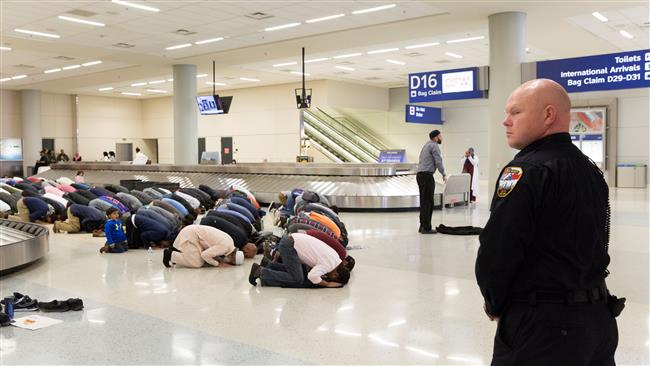
RNA - On June 29, the US began implementation of Trump's controversial travel ban on nationals from six Muslim majority countries including Iran, Libya, Somalia, Sudan, Syria and Yemen.
The ban went into effect after the Supreme Court allowed the Trump administration to go forward with it, handing a surprising victory to the maverick Republican president.
According to the Supreme Court ruling, citizens of the six countries who do not have a “bona fide” relationship with a person or entity in America would be denied entry, but people who can prove they have a relationship to a person or entity inside the US will be permitted to travel to the country.
The Trump administration, however, decided that grandparents, aunts, uncles, nephews and nieces are not considered to be "bona fide" relations.
Hawaii accused the federal government of attempting to violate the Supreme Court's instructions by improperly excluding people who actually have a close family relationship in the US.
It sought clarification over what groups of people would be barred from travel, but its request was rejected by a Honolulu judge this week.
The state then appealed to the 9th US Circuit Court of Appeals in a filing on Friday, saying that the appeals court has the authority to narrow the travel ban while it decides how to interpret the Supreme Court's ruling.
However, a three-judge 9th Circuit panel rejected that argument, saying it did not have jurisdiction to hear Hawaii's appeal.
The 9th Circuit panel said that the Honolulu judge could issue an injunction against the government in the future only if he believed it misapplied the Supreme Court's ruling to a particular person harmed by the travel ban.
However, it added that the judge did not have the authority to simply clarify the Supreme Court's instructions now.
Trump insists his ban is necessary for national security and points to terrorist attacks in Paris, London, Brussels and Berlin as evidence.
However, critics have called the ban discriminatory against Muslims, arguing that the White House’s unwavering support for countries such as Saudi Arabia, which promotes the ideology of terror groups such as Daesh, is indicative of its double standards toward security issues and terrorism.
847/940